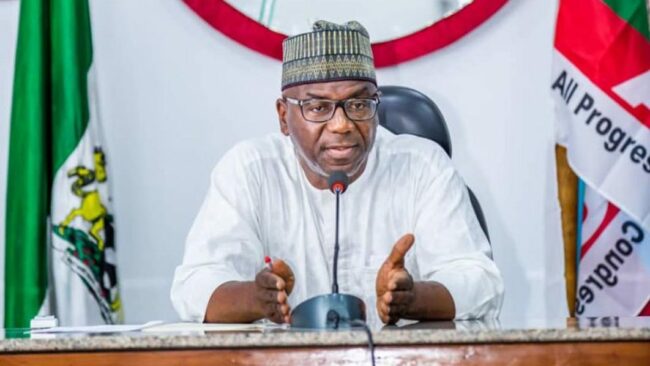Chairman, Nigeria Governors’ Forum (NGF), Governor AbdulRahman AbdulRazaq of Kwara State, expressed excitement on Thursday over the increased commitment of the federal and subnational governments towards education to the tune of N4.6 trillion in 2024.
Governor AbdulRazaq disclosed this in Abuja during the opening ceremony of the 2-day International Conference on Girl-Child Education in Nigeria, organised by NGF, aimed at raising awareness and promoting inclusive education through funding and enrolment initiatives.
He said: “In 2022, states allocated N1 trillion (12%) of their total expenditures to education. This increased to N1.6 trillion in 2023 and further to N2.4 trillion in 2024, alongside the federal allocation of N2.2 trillion.
“Notably, states such as Lagos, Enugu, Kaduna, Abia, Ogun, Kano, Oyo, Jigawa, Niger, Akwa Ibom, and Kwara have made substantial contributions, with many meetings or exceeding the international benchmark of allocating at least 15% of their budgets to education.
“These efforts underscore the positive trajectory of education financing by subnational governments.”
According to him, key discussions during the conference will “focus on access, quality, data-driven strategies, education financing, and policy implementation at the state level. Our objective is to develop a robust framework of action that states can implement to prioritise girl child education effectively.
“To achieve this, the NGF has established various platforms to advocate for and champion far-reaching reforms. These include the NGF-Education Community of Practice (NGF-ECP), whose ECP Intervention Framework is designed to increase primary school enrolment in Nigeria by fostering collaboration among states, local governments, communities, and other stakeholders.
“This joint effort will address barriers to education, raise awareness, and create a supportive learning environment for all children.
“The Committee of States Commissioners of Education (COSCEN) plays a crucial role in promoting subnational collaboration and collective action to drive socio-economic and educational development across the states and Nigeria as a whole, enhancing the quality of education at the grassroots level.
He, however, lamented that “despite progress, the empowerment of the girl child is still hindered by inadequate access to quality education. Practices such as early marriage, early childbearing, poverty, illiteracy, gender-based violence, and other forms of discrimination continue to violate girls’ rights to education in our communities.
“The NGF is deeply concerned by the rising number of out-of-school children, pervasive learning poverty, and the insufficient capacity of teachers to foster empowerment through education. This conference aims to address these critical educational crises across our states.”
While acknowledging that quality education remains the cornerstone of national socio-economic development, he averred that “achieving this requires robust education financing, highly qualified teachers, comprehensive instructional materials, strong advocacy, and the provision of necessary infrastructure.
“Initiatives to re-enrol children in schools, improve learning outcomes, and secure adequate funding are essential to ensuring that every child receives a quality education. This conference serves as a clarion call to take decisive action.”
ALSO READ THESE TOP STORIES FROM NIGERIAN TRIBUNE
